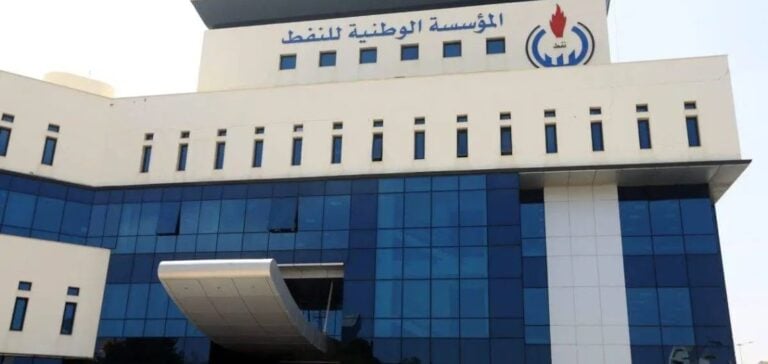Sudden resignation of the leader of the Libyan oil company
The National Oil Corporation (NOC), a public entity responsible for the exploitation and management of oil resources in Libya, has just announced the resignation of its leader for health reasons. According to internal sources, this unusual situation raises questions about operational continuity, as the company provides the country’s main source of revenue. Prime Minister Abdelhamid Dbeibah, recognized by the United Nations (UN), is said to have accepted this decision and appointed an interim leader to oversee daily operations. Observers highlight the central role of NOC in a national context marked by persistent political tensions.
The resignation is officially justified by health constraints, with no additional details provided, fueling speculation about possible internal disputes. An employee, involved in an employment-related legal dispute, had recently challenged the leader’s legitimacy, citing strict rules regarding the single nationality required to hold top-level positions. Authorities state that the interim role will be carried out by Massoud Souleimane, the NOC vice president, until a new board of directors is appointed.
Libyan law indeed prohibits access to the highest public offices for anyone holding an additional nationality. This provision has already sparked debates in several state bodies and has been at the heart of repeated legal disputes. In this specific case, claims regarding the possession of a foreign passport were followed by a thorough investigation into the leader’s compliance with current regulations. Negotiations among various political actors quickly demonstrated the importance of NOC in an economy heavily dependent on hydrocarbons.
For years, Libya has seen the coexistence of two rival governments, increasing uncertainty over appointments in strategic institutions. NOC has often been a key issue in legitimacy conflicts, with each side seeking to control the oil windfall. Daily production, long estimated at around one million barrels, is said to have recently shown signs of growth thanks to the relative stability of certain fields. Nevertheless, temporary terminal blockades and maintenance constraints regularly weigh on export capacities.
The Prime Minister, based in Tripoli, remains attentive to developments within the oil company. His declared aim is to preserve the NOC’s neutrality, considered one of the few unifying economic pillars. The interim leadership assigned to Massoud Souleimane is already generating varied reactions, with some praising a cautious transition while others fear ongoing differences among the various political factions. Observers also emphasize NOC’s historical role in funding public expenditures.
The resigning official had held positions in the banking sector after leading the Central Bank of Libya (CBL). His past experience in a foreign financial institution fueled the debate over the nationality requirements imposed by law. Holding high office within the state apparatus indeed requires strict compliance with this legal framework, under penalty of administrative or judicial challenges. This regulatory specificity is part of an effort to preserve Libya’s sovereign interests in an ever-shifting political climate.
This leadership transition at NOC thus occurs in a global energy context that is attentive to fluctuations in Libyan production. Barrels from this country still account for a significant portion of regional supplies. International financial markets closely monitor the company’s developments, as Libyan oil exports influence price stability in several parts of the world. However, the issue of internal balance remains paramount for sustaining production levels.
The newly appointed vice president asserts that he intends to stay the course on infrastructure modernization and the optimization of existing fields. Various renovation projects are said to have already been launched, aiming to increase extraction efficiency. Some industry officials believe that technological diversification efforts could mitigate the impact of recurring political disputes. The repercussions of the recent resignation nevertheless remind us that the institutional landscape remains fragile, and that legislative provisions regarding leadership appointments have a direct influence on the organization.






















